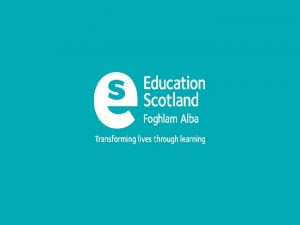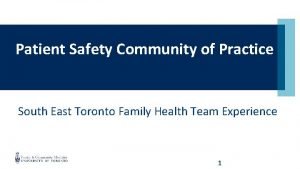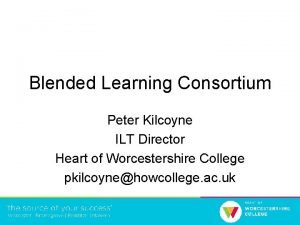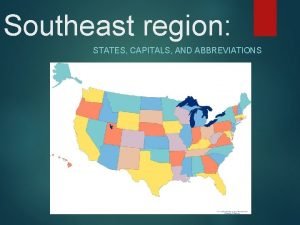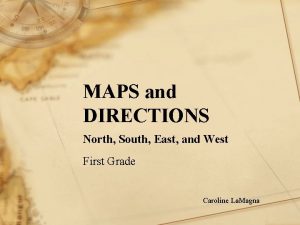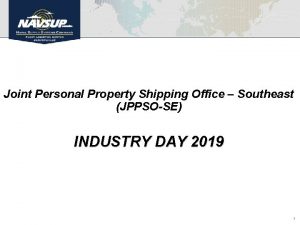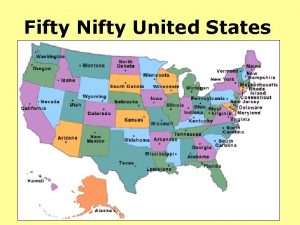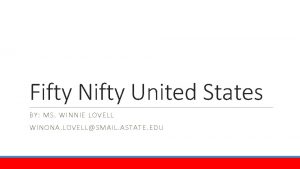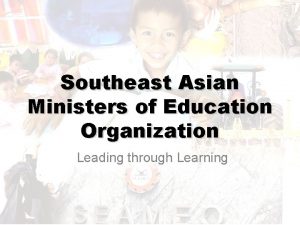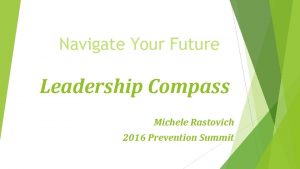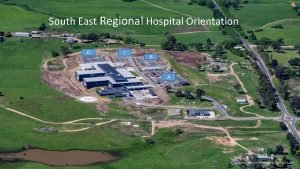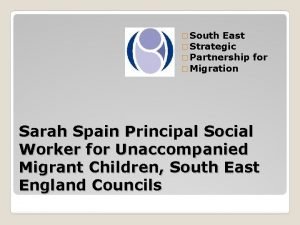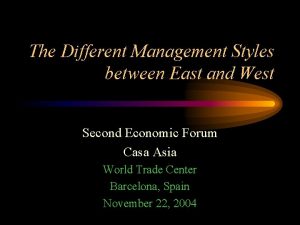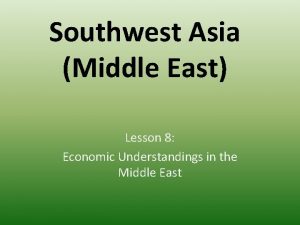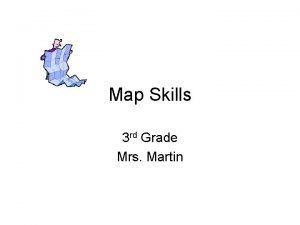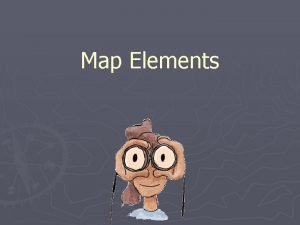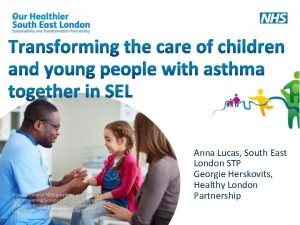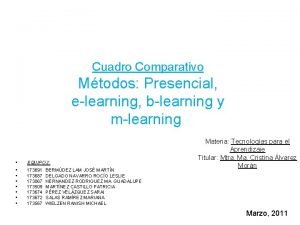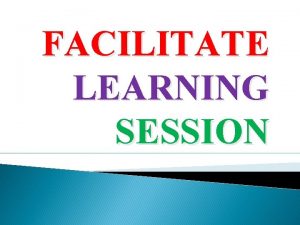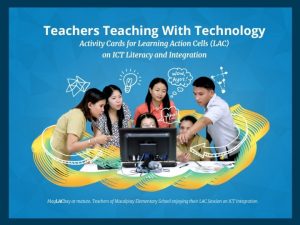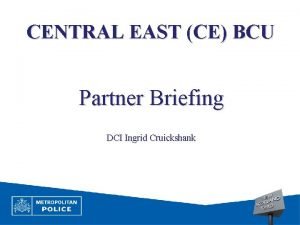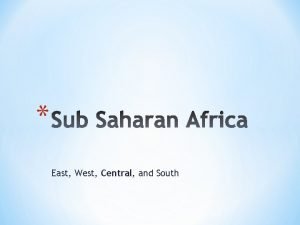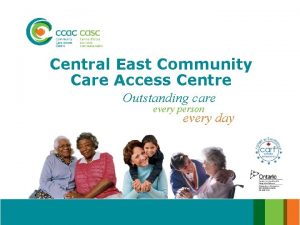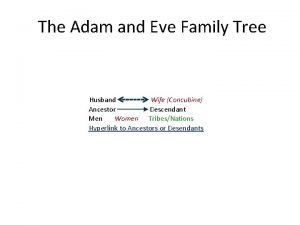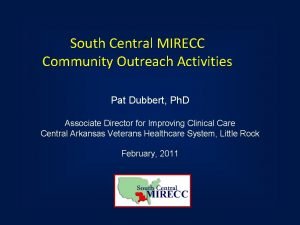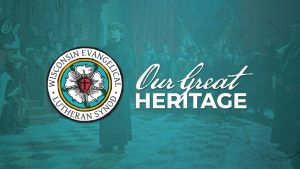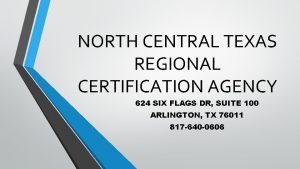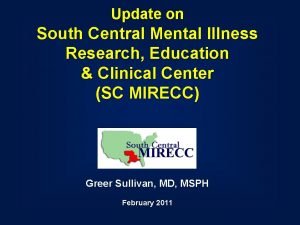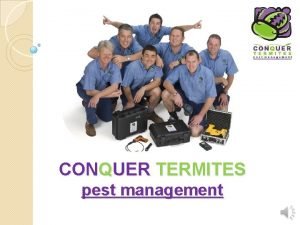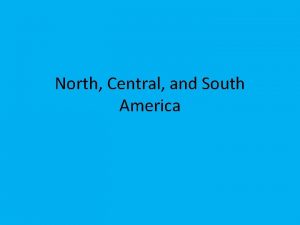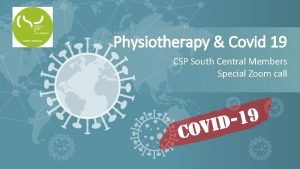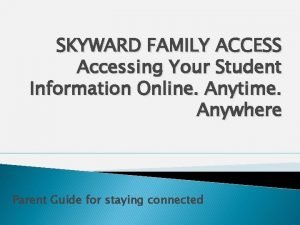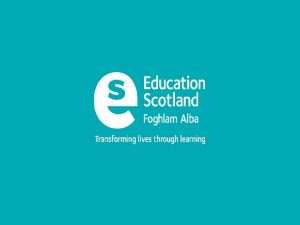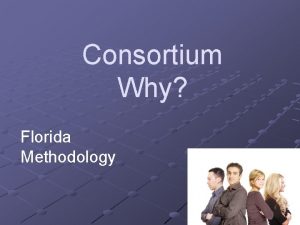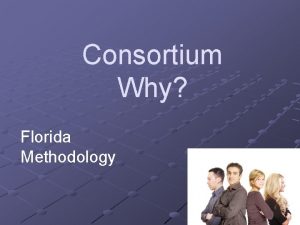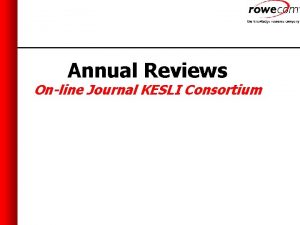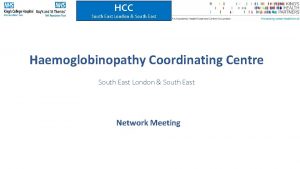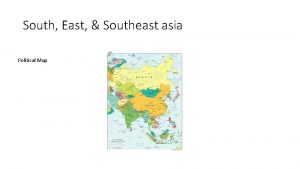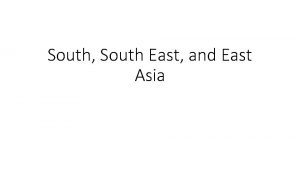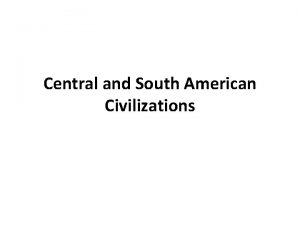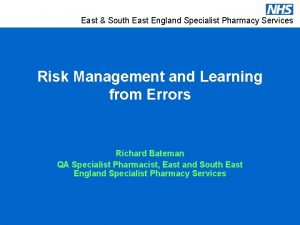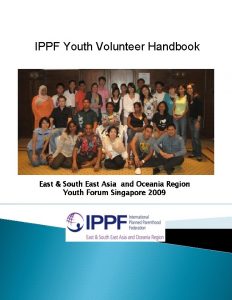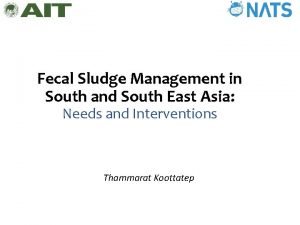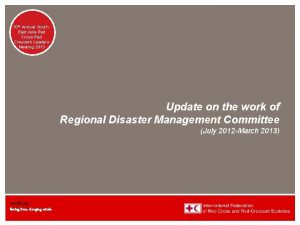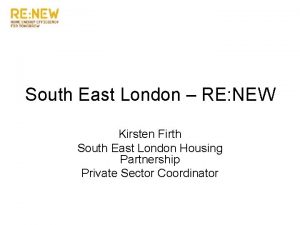SOUTH EAST CENTRAL CONSORTIUM A FAMILY LEARNING SESSION










































- Slides: 42


SOUTH EAST & CENTRAL CONSORTIUM A FAMILY LEARNING SESSION November 2017

Session outline 1. The National Picture – Scottish Attainment Challenge 2. The National Picture – Inspection 3. Comments and questions 4. Planning and evaluation – using How good is our. . ? including a case study 5. Group discussion 6. Local examples 7. Feedback and comments

Scottish Attainment Challenge Families and Communities The National Picture

Vision The vision for education is to deliver both excellence and equity: • Excellence through raising attainment: ensuring that every child achieves the highest standards in literacy and numeracy, set out within Curriculum for Excellence levels, and the right range of skills, qualifications and achievements to allow them to succeed; and • Achieving equity: ensuring every child has the same opportunity to succeed, with a particular focus on closing the poverty-related attainment gap. Document title Transforming lives through learning

Families and Communities – Current Milestones • Provide direct support to Local authorities / schools to influence and improve understanding locally around opportunities to strengthen links with Community Learning and Development, Communities and Family learning. • Development of Community Learning and Development Families and Communities Hub Resources and Case Studies for Scottish Attainment Challenge. • Publish examples of good practice in working with families and communities on Community Learning and Development. • Deliver workshops at the national Curriculum for Excellence leadership conferences on contribution of Families and Communities to reducing inequity. Document title Transforming lives through learning

Current Milestones (Cont. ) • Work with Scottish Attainment Challenge authorities to develop progressive family learning programmes, taking full account of the Review of Family Learning (2016). • Publish Framework for Family Learning to support effective practice. • Publish report on 2016/17 intelligence gathered through inspection on Family Learning. Document title Transforming lives through learning

Interventions for Equity Document title Transforming lives through learning

Defining Family Learning

Recent Developments in Family Learning Review (2016) Family Learning Survey of Programme Delivery Research Evaluation Family Learning Programme Delivery Workforce Development Document title Transforming lives through learning

Recent Developments in Family Learning at Sabhal Mòr Ostaig UHI Dads as Partners in Their Children’s Learning (PROFF) Family learning Science, Glasgow Clyde College

Legislation / Policies The National Improvement Framework National Parenting Strategy (2012) Review of the Impact of the Parental Involvement Act (2006) 2017 National Delivery Plan for Scottish Education Scottish Attainment Challenge Adult Learning in Scotland, a Statement of Ambition (2014) Empowering teachers, parents and communities to achieve Excellence and Equity – A Governance Review (2017) Scottish Schools (Parental Involvement) Act 2006 and Guidance Learning at Home/School Partnership Parental Representation

Family Learning Resource - I am a Scientist https: //www. education. gov. scot/parentzone/Documents/Iama. Scientist. Mar 16. pdf Document title Transforming lives through learning

Family Learning Resource - I am a Mathematician https: //education. gov. scot/parentzone/Documents/IAm. AMathematician 120517. pdf Document title Transforming lives through learning

Question How can we work together to support the contribution that working with Families and Communities can make on reducing the poverty related attainment gap? Document title Transforming lives through learning

Websites / Blogs National Improvement Hub - https: //education. gov. scot/improvement Parentzone Scotland - https: //education. gov. scot/parentzone/ Family Learning and Partnership Blog Posts https: //familylearningscot. wordpress. com/ https: //blogs. glowscotland. org. uk/glowblogs/eslb/ Document title Transforming lives through learning

Governance Review - Next Steps Local authorities will: Ensure that LA provision such as … Community Learning and Development and third sector partners work effectively with schools and regional improvement collaboratives to provide care and education to children and their families

The National Picture Inspection

Community Learning and Development Inspection of CLD partnerships 2016/17 • Twelve local authorities inspected: Midlothian, Aberdeen, Edinburgh, West Dunbartonshire, Dundee, Falkirk, Shetland, East Renfrewshire, Angus, North Ayrshire, North Lanarkshire and East Dunbartonshire • Looking at leadership, workforce development, impact on learners, impact on communities and performance

Community Learning and Development North Lanarkshire CLD inspection report Aug 2017 A key feature is the close and productive partnership working between schools and the CLD service. CLD staff contribute very effectively to a wide range of school priorities including parental engagement, family learning, positive transitions and programmes for children and young people with additional support needs. Home School Partnership work in schools significantly extends and enriches the learning offer.

Schools • Family learning 2. 5 was the choice Quality Indicator in several schools • Family learning also often picked up through looking at partnership, inclusion, wellbeing and achievements • Parental engagement explored in every inspection – using 3 rd theme of QI 2. 7 Partnerships Impact on learners – Parental engagement

Schools – Choice Quality Indicator Wellbeing Support Service – East Dunbartonshire Parents are supported to be actively and meaningfully involved in their child’s learning and life at school. Staff work with parents to reduce potential barriers to engagement … Larbert High School - Falkirk School staff make good use of data to target those families in need of support. The school has established an agency led group to plan and develop family learning approaches across the school. This is a good start to promoting partnership working and developing family learning initiatives.

Schools – Choice Quality Indicator (Cont. ) Cornton Nursery - Stirling Family learning and work within the community empowers parents to support their children’s wellbeing with a focus on nutrition and relationships. St Albert’s RC Primary School – Glasgow The school is very responsive to the views of parents and children. Parents are involved in the World of Work day. Parent representatives are fully involved in designing and delivering learning programmes and in identifying needs to be addressed.

Comments and questions

Planning Is not a process to be undertaken by an individual in a room on their own; rather it should actively involve colleagues, service users, partner organisations and others. Families views should also be taking into consideration at this stage to assess need.

Planning 1. 2. 3. 4. 5. 6. 7. 8. 9. Identify need. This can be done in a variety of ways. Some of these include: Scottish Neighbourhood Statistics; Partner Agencies such as Housing, Third Sector, CLD, Attainment figures, Talk to families, outreach service Reduce potential barriers to participation. Identify partner agencies. These can be for direct delivery of the programme or referral routes. Some of these will include: CLD/Adult Learning/Family Learning, Third sector/NHS Drugs and Alcohol Service, Museums and Galleries Develop a partnership agreement or Single Outcome Agreement. Identify appropriate programme or develop one as appropriate. Families needs should be at the centre of this process. Create a robust engagement plan. This should be multi-dimensional and incorporate partners existing relationships with families. Costings – in kind or funding Progression pathways Evaluation Keep the families needs at the centre

Engagement can be difficult but is a vital part of the process. 1. Trust is key. This can be the trust that you have developed or that of your partners. 2. Transparency. Families need to believe that there is no hidden agenda. 3. Outreach needs to be soft. 4. Fun - Families engage more when learning is fun for all the family. This is particularly true of pre-learning activities.

Programme Delivery Programmes should be evidenced based. If you are developing your own they should link to current research. Family learning is based on a wealth model. This is about finding out where families are and building on existing skills and knowledge. Make learning relevant. At the start of the programme you need a baseline measurement so you can compare progress. This can involve gathering information on learners’ skills, knowledge or abilities so that you can measure their progress at different stages and at the end of the programme. Programmes can be formal or informal.

Evaluation in family learning is the process of formally identifying the value or success of a programme or learning session. Evaluation should take account of the whole continuum of provision from engagement activity, through to induction, the delivery of learning and teaching, any assessment that takes place, and the short, medium and longer-term outcomes for families and their communities.

Evaluation Why? • Explore impact on families, individuals and/or on the organisation itself • Make changes that are necessary, or to build on what is working well • Identify unexpected results, impacts or outcomes. How? • Ask the right questions of the right people at the right time. • Questions should be objective and should seek answers relating to what it is you want to know. Who is involved? • Everyone involved in the delivery and who benefits from the programme • You can also ask questions of partner organisations involved in the delivery and referral process.

Using the How good is our…. . frameworks • Self-evaluation resources which support establishments, organisations and partnerships to evaluate progress, strengths and areas for development How Good Is Our Third Sector Organisation?

They support practitioners to undertake the core process of self-evaluation and engage in the virtuous cycle of improvement Asking: How are we doing? How do we know? What are we going to do now? Looking: Inward, outward, forward

How good is …. . ? • Aim to provide a common self-evaluation language between sectors • Are developed with practitioners and stakeholders • And each have at their core Quality Indicators with illustrations of very good practice and challenge questions

Challenge questions from HGIOS 4? 2. 5 • What evidence do we have that family learning is improving the life chances of the families involved? • How can we demonstrate that families are feeling included and that they are participating, achieving and progressing? • How effectively do we use current available date about levels of poverty in our community to help us target interventions? • How well do we match the right programme to the right families?

Challenge questions - partnership QI 1. 1 Improvement in performance (HGILDOC? ) • Are we good at sharing our information with partners? How do we do this? QI 8. 1 Partnerships (HGILDOC? ) • How well do we plan, monitor and evaluate within partnerships? QI 2. 7 Partnerships HGIOS 4 • How well do we seek out and respond positively to potential partnerships which will lead to better outcomes for the children and young people we work with? QI 9. 3 Leading people and developing partnerships (HGIOTSO) • To what extent does our ethos promote teamwork with partners and stakeholders?

Case Study Peep Learning Together Programme Created three overarching questions and then matched quality indicators. Evaluation methods were identified to gather the necessary information: Ø How clear and effective are our partnership arrangements with local authorities? Ø How well does our partnership work with local authorities to ensure family learning staff are inclusive and engage families who will best benefit from support? Ø How is our partnership work with local authorities improving outcomes? Video: Denise Millan PEEPLE Qualifications Coordinator https: //education. gov. scot/improvement/Pages/fam 5 -hgiots-partnership-and-familylearning-self-evaluation. aspx

Overarching Questions How Good How good Challenge Questions Is Our Third is our Sector school 4 ? Organisatio n q How well do we support local authorities to be effective, efficient and 2. 2 Impact on improve their practice? Does this result in them making positive and organisations sustained impacts of the people they work with? we support How clear and effective are our partnership arrangements with local authorities? q How well do we increase capacity in local authorities to plan, monitor and evaluate to improve outcomes? q How well do we communicate with local authorities? Is communication regular and in a format which suits each local authority we support? q How clear are the partnership agreements we enter into? q How well do we develop and agree shared priorities with local authorities? q How well do we plan, monitor and evaluate our work with local authorities? q How clearly have the purposes, aims, roles and responsibilities in our partnership been communicated to staff and volunteers? How do we know? q Are we clear what added value the partnership brings and what difference it makes to the people we work with? q How well do we work with local authorities to plan for the future and meet changing and emerging needs? 8. 1 Partnership working

Overarching Questions How Good Is How good Challenge Questions Our Third is our Sector school 4 ? Organisation How well does our partnership work with local authorities ensure family learning staff are inclusive and engage families who will best benefit from support? 2. 5 Family Learning How are we ensuring provision is responsive to the needs of families? How effectively do we use current available data about levels of poverty in our community to help us target our interventions? How are we actively promoting equality, fairness and diversity? How effectively do we monitor programmes? How well do we match the right programme to the right family? To what extent do staff understand GIRFEC, the wellbeing indicators and how these can have a positive impact on children and families? How well do we increase capacity in the organisations we support to promote inclusion, equality and fairness? What evidence do we have that family learning is improving the life chances of families involved? What difference is peep provision making to the lives of the children and families who take part? Are outcomes for children improving as a result of their participation in family learning? How do we know? How can we demonstrate that families are feeling included and that they are participating, achieving and progressing? 2. 2 Impact on organisations we support How is our partnership work with local authorities improving outcomes? 2. 5 Family Learning

Group discussion 1. Read HGIOS QI 2. 5 2. In small groups discuss how you could use it to help you plan and deliver family learning 3. Consider what other Quality Indicators you might want to look at to help you and your partners plan, monitor and evaluate family learning programmes

Examples of practice in the South East and Central area

Comments and questions

Contact Details Alona. Murray@educationscotland. gsi. gov. uk Mandy. Toogood@educationscotland. gsi. gov. uk Mhairi. Mac. Raild@educationscotland. gsi. gov. uk beverley. ferguson@educationscotland. gsi. gov. uk parentzone@educationscotland. gsi. gov. uk Document title Transforming lives through learning
 East central consortium
East central consortium Horizontal movement of air
Horizontal movement of air South east toronto fht
South east toronto fht Kalahari desert on africa map
Kalahari desert on africa map East is east and west is west
East is east and west is west Blended learning consortium
Blended learning consortium Southeast capitals and states
Southeast capitals and states Orthopaedic services east london
Orthopaedic services east london Maps.google.comps
Maps.google.comps Imaginary lines of the earth
Imaginary lines of the earth Joint personal property shipping office
Joint personal property shipping office The nifty plates from the fifty states
The nifty plates from the fifty states Fifty united states
Fifty united states Southeast asian ministers of education organization
Southeast asian ministers of education organization North south east west leadership styles
North south east west leadership styles South east regional hospital
South east regional hospital North east south west
North east south west South east strategic partnership for migration
South east strategic partnership for migration North, south east west leadership styles
North, south east west leadership styles Lesson 8 middle east and south asia
Lesson 8 middle east and south asia South east linuxfest
South east linuxfest North south east west direction
North south east west direction World map with latitude and longitude pdf
World map with latitude and longitude pdf South east midlands lep
South east midlands lep South east london stp
South east london stp Old south vs new south streetcar named desire
Old south vs new south streetcar named desire Cuadro comparativo e-learning y b-learning
Cuadro comparativo e-learning y b-learning Facilitating learning session
Facilitating learning session Minutes of lac session
Minutes of lac session East central indiana
East central indiana Central east bcu
Central east bcu East west central
East west central Central east community care access centre
Central east community care access centre Adam and eve lineage chart
Adam and eve lineage chart Who is the narrator of east of eden
Who is the narrator of east of eden South central mirecc
South central mirecc South central district wels
South central district wels North central texas regional certification agency
North central texas regional certification agency South central mirecc
South central mirecc Conquer termites
Conquer termites North, central and south america
North, central and south america Covid special
Covid special Skyward family access south kitsap
Skyward family access south kitsap
